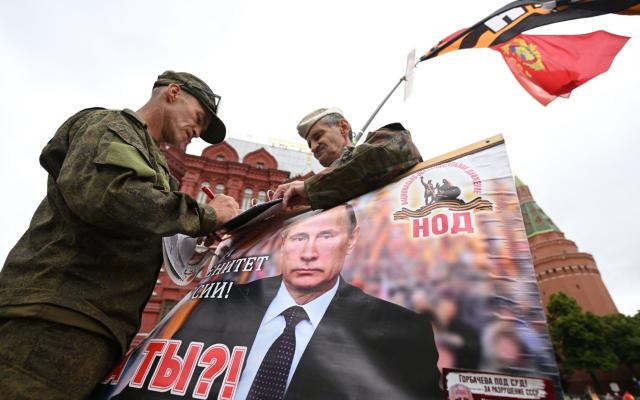Prigozhin’s attempted coup will change Russia forever

Views (101)

Regardless of whether or not Yevgeny Prigozhin stands down his coup, the chaos in Russia has seen the country cross a rubicon. The Russian state will emerge both more militarised and fascistic whatever happens. It may be true, as Mr Prigozhin claimed, that “not a drop” of blood was spilled on his march to Moscow, but nothing positive will emerge from the truce. Either Prigozhin’s freikorps will claim more power or Vladimir Putin’s crackdown will be hideous. A more nationalist Russia results eith
Indeed, the coup marks the definitive turn of a page in Russian history: from an era of oligarchs such as Roman Abramovich, still a lingering presence at the start of the invasion, to the era of warlords with private armies, like Prigozhin. Their numbers have mushroomed since the assault on Kyiv and now include battalions linked to the Russian energy giant Gazprom.
Western officials were already speculating a few weeks ago that Russia’s future would be shaped by private military companies. But their time horizon was a few years not days. The immediate fate of both Prigozhin and Putin and their negotiations will now depend on how these warlords line up, from the Chechen leader Ramzan Kadyrov, whose armed Kadyrovtsy are loyal to him, to Viktor Zolotov the head of the Rosgvardia National Guard.
Why did Prigozhin do it? The psychological reasons are obvious. Why did Napoleon gamble on the 18th of Brumaire? Why did Caesar cross the Rubicon? Because they thought they could win. The interesting question is what were the political conditions, exactly, that made Prigozhin come to this conclusion. The answer lies that for decades Putin has succeeded as a politician but failed to build a modern state. Ruling by, with and tolerating baroque corruption. Abhorring structures and institutions, which this kleptocracy undermined, Putin always chose to reward ad hoc loyalists and workarounds, like the Wagner Group.
The mutiny has dramatically weakened Putin and his war effort. As it stands, the old Putin system, where the man insiders called the Tsar fought and stole under his leadership, as he occasionally poisoned a journalist or an opposition leader is over. Over the next 48 hours Putin may come to some sort of uneasy truce with his one-time caterer, but the result in the long-term will be a fundamental rebalancing of power away from him. He may still sit in the Kremlin in a year’s time, but the era when he was the only thing that mattered in Russia is over. Prigozhin buried it, whatever happens next.
This is an auspicious but also ominous moment for Ukraine and the West. Kyiv’s counter-offensives, which whilst ongoing, had not enjoyed the early success they might have hoped for, now have an incredible chance to capitalise on the bankruptcy of Russian morale, disorientation and distraction. The political chaos in Moscow aids Ukraine in the short-run, but in the long-run, if an even more fascistic and hyper-militarised Russia emerges it will require ever greater resources, both in terms of men and material, to keep fighting. Meanwhile, for the West, the terrifying question of the control of Russia’s nuclear weapons must be the north star of its strategy, however unpleasant that means the interlocutors are. Who, at this present time, controls the many tactical nuclear weapons in the field? Russia’s agonies, as a state and as a society, will last much longer than those of Ukraine. But the allies should abandon any hope of Russia reverting to “normality” any time soon.
It is not a sad and scary future which awaits the Russian people – that is already their present.
Ben Judah is the author of This Is Europe: The Way We Live Now published by Picador
0 Likes
